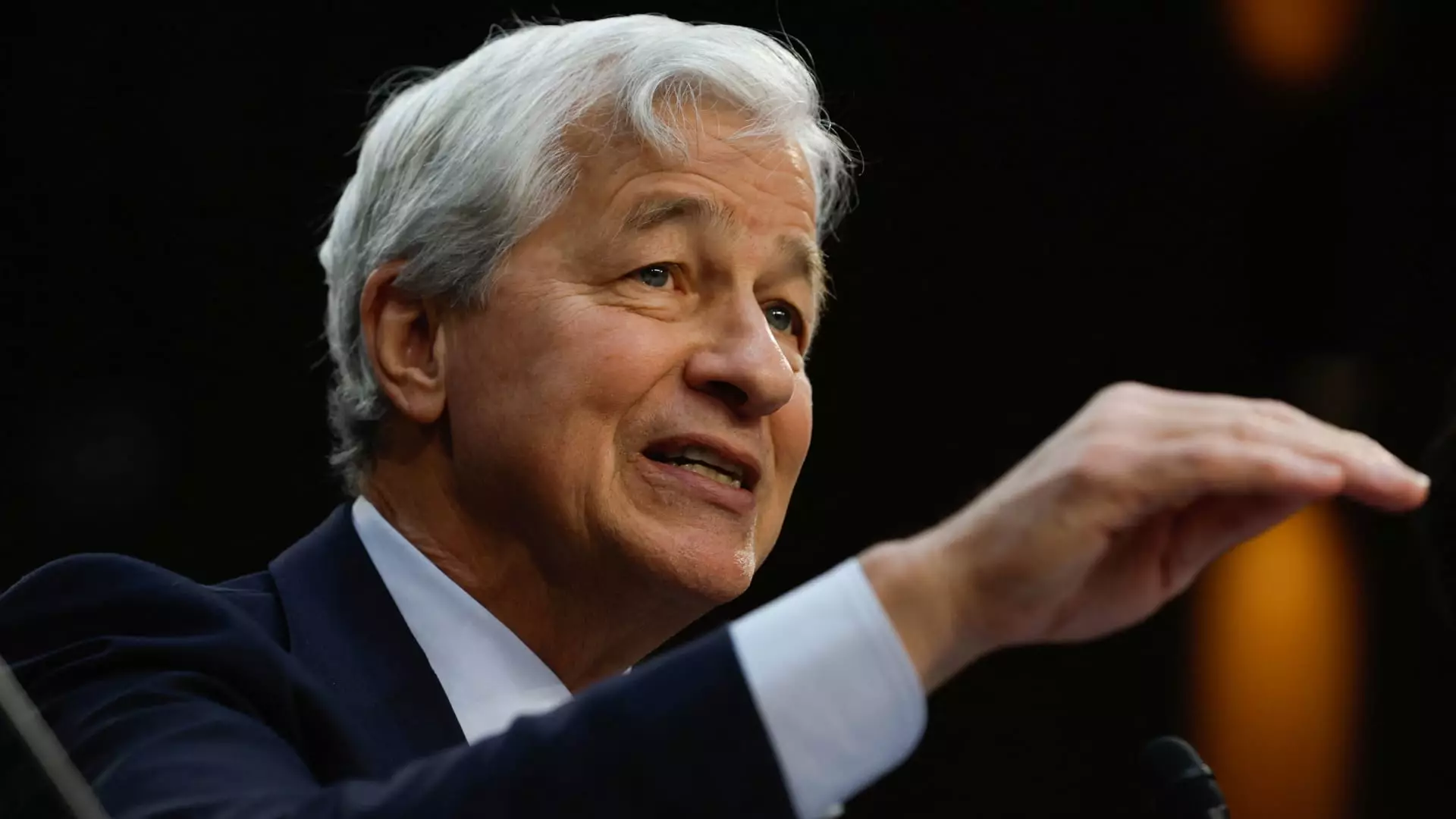JPMorgan Chase’s CEO Jamie Dimon, a formidable voice in the financial sector, recently highlighted a troubling trend regarding corporate earnings forecasts amid President Donald Trump’s tumultuous trade negotiations. During a call with reporters, he candidly shared his concerns, implying that the anxiety surrounding these negotiations could lead to reduced confidence in corporate performance. Dimon is not just observing situations; he is deeply involved, signaling a potential downturn in market optimism which could have far-reaching effects across various sectors.
Corporate Guidance Under Siege
Following Dimon’s remarks, CFO Jeremy Barnum echoed the sentiment of caution and uncertainty, asserting that the bank would maintain its guidance but acknowledged the precarious environment. The duo suggests that many companies are withdrawing or revising their earnings forecasts, a trend indicative of fear and hesitation within the corporate sphere. This shifting landscape raises questions about strategic decision-making. When key players in the market begin to backtrack on their projections, it can create a ripple effect, leading to an even greater reluctance among businesses to invest or pursue acquisitions, further stifling growth opportunities.
The Analytics of Earnings Estimates
Dimon emphasized that analysts have already slashed their S&P 500 earnings growth estimates, and he foresees a potential shift from a modest 5% growth to stagnation or even a decline of 5% in the coming weeks. This adjustment of expectations reflects a broader worry about corporate profitability in an unpredictable economic milieu. The implications of such downgrades not only influence investor sentiment but also impact budget allocations and strategic business decisions in an environment that is characterized by uncertainty and volatility.
Consumer Behavior Amidst Rising Concerns
Interestingly, while market players exhibit caution, consumer behavior seems to be resisting this trend, at least for the moment. Barnum noted that, rather than retracting purchases, consumers are being proactive, perhaps driven by fears that tariffs will lead to increased prices in the future. This dichotomy presents a complex challenge for businesses trying to navigate immediate demand while reconciling long-term planning with an unfavorable policy landscape. Consumers are ready to spend, yet their understanding of potential future costs creates its own form of market pressure.
A Cautionary Tale for the Future
The dynamics of trade relations and policy uncertainty necessitate a significant reevaluation of how businesses approach investment strategies. Dimon cited how companies are favoring short-term supply-chain optimization over long-term growth initiatives, revealing a fundamental shift in corporate strategy triggered by external pressures. This penchant for short-sightedness raises alarms about the sustainability of corporate growth and the ability to weather prolonged periods of uncertainty. In an economy riddled with unpredictability, such cautious narratives could become the norm, leading to a more timid business world where significant risks become avoided at all costs.
The current financial landscape, as portrayed by Dimon and Barnum, is a powerful reminder of how external factors can profoundly shape corporate strategies and investor attitudes.

